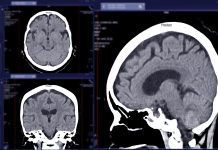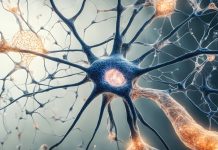Jules Knight, Consultant Admiral Nurse for Young Onset Dementia at Dementia UK, tells us about the prevalence of young onset dementia and some of the challenges that people living with dementia can face
How common is young onset dementia, and what are the key risk factors?
Figures supported by Dementia UK show that there are an estimated 70,800 people in the UK living with young onset dementia. (1) The first symptoms to occur in younger people are not always memory-related. Instead, symptoms may include issues with language, speech, vision, spatial awareness, and behaviour, which can make it more challenging to recognise and diagnose.
People aged under 65 are more likely to have a rare or inherited form of dementia, such as familial frontotemporal dementia or familial Alzheimer’s disease. People from Black and other ethnic minority groups are at greater risk of developing young onset dementia, as are people with a learning disability. Some cases of dementia can also be caused by alcohol-related brain damage.
What are the key challenges regarding the diagnosis of young onset dementia?
We know that it takes much longer for someone under 65 to be diagnosed with dementia – 4.4 years on average. (2) That’s two times longer than for people over the age of 65. There are many challenges for people with young onset dementia when seeking a diagnosis, and this is largely due to the lack of awareness around the condition, especially among medical professionals.
There is a common misconception that dementia only affects older people. In addition, often, people with young onset dementia may be physically fit, meaning their symptoms aren’t quite as apparent. Early symptoms of young onset dementia aren’t always memory related either. This makes the process of seeking a diagnosis much more difficult as often when someone younger is presenting with dementia symptoms, they are misdiagnosed with stress, depression, or relationship issues.
Early diagnosis is vital for dementia; it means support can be put in place to help the person live as well as possible with the condition. As part of Dementia UK’s ‘Put Dementia on the Agenda’ campaign, the charity is calling on the new government to improve diagnosis rates and age-appropriate support for people with young onset dementia.
For someone living with young onset dementia and perimenopause and/or menopause, how can these conditions impact day-to-day life? Are there any lifestyle changes people can make to better manage their symptoms?
Around 90% of women experience menopausal symptoms. (3) Some only have mild symptoms, but a quarter of women report experiencing symptoms so severe that it affects their everyday lives. For women living with dementia, there are additional challenges when they are going through these hormonal changes.
As the symptoms of menopause and perimenopause closely mirror many symptoms of dementia, such as brain fog and concentration issues, it can be difficult to distinguish whether symptoms are being caused by menopause, which can lead to delays in accessing the right support and medication to manage symptoms.
However, there are several ways to manage or improve symptoms of perimenopause and menopause. These include having good quality sleep, as lack of sleep can worsen memory and concentration issues, and getting regular exercise, which can help boost attention and mitigate stress and anxiety. It is also beneficial to reduce alcohol and smoke intake, as they can make symptoms worse – including disruption of sleep.
If you need advice or support around young onset dementia and perimenopause or menopause or any other aspect of dementia, you can click here for information resources and to find out how to access our national helpline and clinics’ services.
How will Dementia UK work with NHS England’s newly appointed National Clinical Director for Dementia, Dr Jeremy Isaacs, to drive progress in dementia diagnosis and care?
Dementia is a huge and growing health crisis. During the first year of the new government, it is estimated that the number of people living with dementia in the UK will exceed one million. (4)
We remain committed to working alongside the government, including the newly appointed National Clinical Director for Dementia, to improve health outcomes for families with dementia. Our manifesto calls on the new government to ‘put dementia on the agenda’ in order to transform dementia care and ensure everyone gets the specialist support they need when they need it. You can find out more about the campaign here.
If you need advice or support on living with dementia, contact Dementia UK’s Admiral Nurse Dementia Helpline on 0800 888 6678 or email helpline@dementiauk.org.
References
- https://www.dementiauk.org/news/new-figures-show-70800-uk-adults-are-affected-by-young-onset-dementia/
- https://www.dementiauk.org/information-and-support/young-onset-dementia/young-
- https://www.dementiauk.org/wp-content/uploads/dementia-uk-young-onset-dementia-perimenopause-menopause.pdf
- https://dementiastatistics.org/about-dementia/prevalence-and-incidence/#:~:text=Prevalence%20and%20incidence%20of%20dementia,to%20rise%20to%201.4%20million








